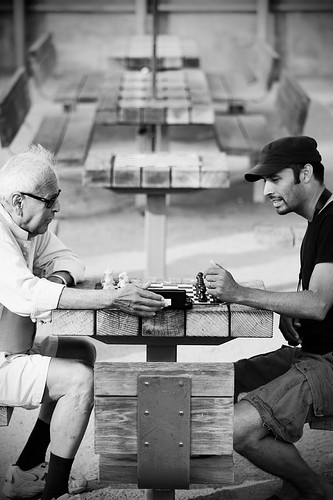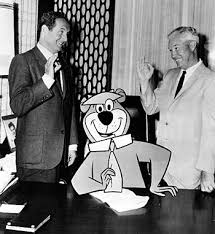The Ageist Divide
Remember the golden rule? Keep that in mind

“Black and White” by Brian Auer is licensed under CC BY-NC-ND 2.0
Ageism is prejudice based on one’s age. Upon first hearing the term ageism, many will lift their brow and chuckle at the thought that such a thing exists. This is the first reason we must pay attention: ageism is ingrained in everyday life to the point where it’s nearly invisible in society.
Whether one thinks they have been a victim, a contributor, or neither regarding ageism, everybody is affected.
Silents, Boomers, Gen X, Gen Y, Millennials, and Gen Z. Each generational label represents a group of people solely on their age. It is based on these labels that we stereotype and disregard each other. Displays of age stigmas are most prominent on social media. TikTok breeds the heated war between Millennials and Gen Z on everything from lifestyles to skinny jeans, and the word “Boomers” is now a coined insult.
Such examples and problems seem like petty banter, and it is, but not when such jesting turns into health and life problems. We live in a society composed of two powerful, unpredictable, and essential features: government and social media. Who says the final word in government? Mainly people of fifty years or older. Who controls social media? Mainly teenagers. Ageist stigmas allow people to overlook the “know your neighbor” aspect of social life and instead rely on what they believe is true about a said person because of their age. Usually, those “truths” are shallow and apply to a tainted few groups of people. A clash between young and old, curated by ageist stereotypes, entails a battle between the forces of social media and the government.
Further explanation of ageism is best described on this more personal and individual note: family. Families with ageist views can severely impact well-being and relationships among kith and kin. What is expected of a family is support, love, trust, and understanding, but those fly out the window because of many things, a contributor being ageism. For example, maybe someone is an overall well-rounded, mature, and responsible child. Still, since they are turning 16 soon, their parents have grown to mistrust them because of the rowdy and unstable experience with teens in movies, the parent’s own teenage experience, or neighborhood gossip.
Or, maybe, one is a person of older age who is released from their job due to the core reason that the boss, like others, associates “seventy-five” with the incapability to work, despite the contributions the person has made or is making.
These now impressions of family members and comrades are based on common stereotypes instead of who they are. Ingrained blemishes of an age group cloud a person’s vision and put people in extreme positions of disbelief, anger, and mistrust.
Ageism creates unnecessary divides between people who, ultimately, depend on each other. Remember: everybody has a history unheard of in textbooks and their own unique skills. Remember that nobody is the same. Above all else, remember the golden rule. Treat others the way you want to be treated.










